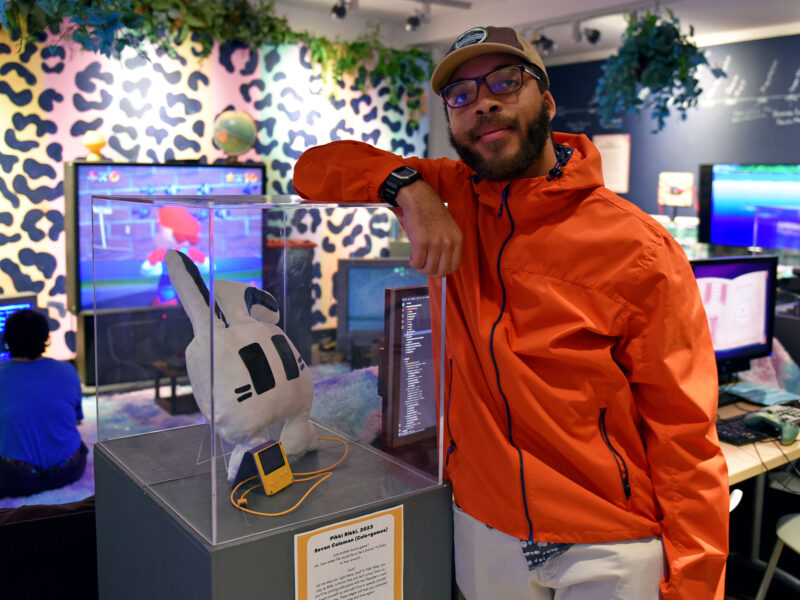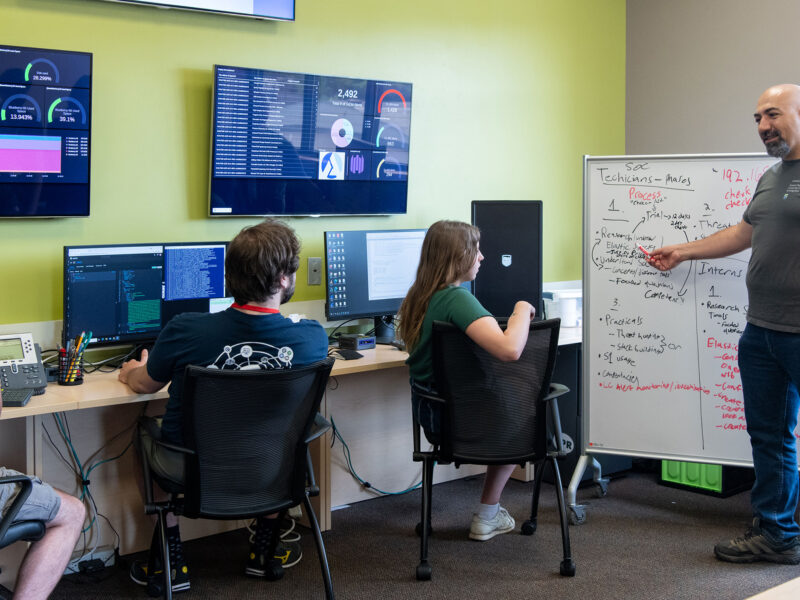President Hernandez: Creating the College of the Future

This op-ed is by Alex Hernandez, President of Champlain College, and was first seen in VTDigger on Monday, March 25.
The Wall Street Journal recently reported that “roughly half of college graduates end up in jobs where their degrees aren’t needed,” raising uncomfortable questions about the value of a college education.
The report is part of a drumbeat of headlines focused on declining student enrollments, budget deficits, and changing academic programs—reflecting dramatic shifts in the higher education landscape.
If you are an Ivy League university with a $50 billion endowment, it can be business as usual, but the majority of the nation’s 3,900 higher education institutions need to evolve.
At Champlain College, we are asking: What does the college of the future look like?
If we want students to succeed in a strong first job after graduation—and realize the long-term promise of a college education—we must design institutions that give students the experiences they need to launch their careers and live meaningful lives.

The college of the future will break down the classroom walls so students can learn in the workplace, the community, and around the globe.
Through deeper partnerships with employers, students can earn academic credit and a paycheck. We can turn higher education upside-down and give students career-focused experiences the moment they start college—experiences that build confidence, humility, and curiosity.
For example, Champlain College recently announced a partnership with NuHarbor Security, a leading cybersecurity firm, to open a NuHarbor office on our Lakeside Campus in Burlington’s South End Innovation District. Beginning their first year, students will learn from faculty and industry professionals in the same space, take on paid internships, and manage their own cybersecurity business.
This unconventional approach drives results: our cybersecurity graduates have a 97% employment rate and an average starting salary of $70,000 in a fast-growing industry.
However, meaningful work is about more than just a paycheck. We need to set students up for long-term fulfillment and success.

President Hernandez chats with alumni and current students interning and working at NuHarbor Security in Colchester, Vermont. NuHarbor will soon co-locate at our Lakeside campus, where our Leahy Center for Digital Forensics & Cybersecurity is located.
The college of the future will reach across disciplines and let students combine their interests so they can be future ready.
Breakthrough technologies like artificial intelligence, digital biology, and sustainable energy are reshaping the world. Students can specialize to advance these breakthroughs, but, for every specialist we educate, we need many more students who can connect the dots across fields and help us interpret and adapt to the changes these technologies bring.
At Champlain College, we imagine a team of students majoring in psychology, computer science, creative media, and criminal justice working with the state of Vermont to combat the fentanyl crisis. In the future, students from different majors will share more courses and experiences to better understand the forces shaping our world. This is how students learn to collaborate, build products and services, and tackle social challenges.
Imagine an entrepreneurship student interning for a sustainable food startup, combining their interests in biology and marketing to help the company launch its product. In the future, students will have more flexibility to customize their education to pursue emerging opportunities.
The college of the future will help students be more human in a digital world.
Being future ready is not simply about knowledge and technical skills. As technology does more and more, it is our humanity that sets us apart. What values guide our choices and actions? How do we form enduring relationships? How do we communicate to build trust and inspire action? Higher education has always been good at exploring questions that encourage students to grow as human beings.
Colleges will build on students’ human strengths, cultivating mindsets and behaviors that lead to connection, creativity, inspiration, and achievement.
In the end, employers can teach technical skills, which constantly change. What they tell us they value most are employees with the personal and professional competencies to help diverse groups of people thrive—in the workplace, at home, and in the community.
Higher education is at a crossroads. Changing demographics, economics, and technology are forcing colleges to evolve. These same factors are impacting Vermont in profound ways.
At Champlain College, we are building the college of the future so students are ready to launch their lives. We are building the college of the future because Vermont needs innovative, dynamic education institutions acting as engines of opportunity. It is time to transform.
Looking for more information about Champlain College? Start here!
Fill out the form to receive helpful information!
Author

More Inside The View
Ideas
From the minds of our students, faculty, and alumni.
News
The latest from Champlain College.
People
Champlain is more than just a place; it's a community.
Places
On campus, in Burlington, and beyond.
Events
Check out our many campus events and get involved! Refine your search by using the filters or monthly view options.


